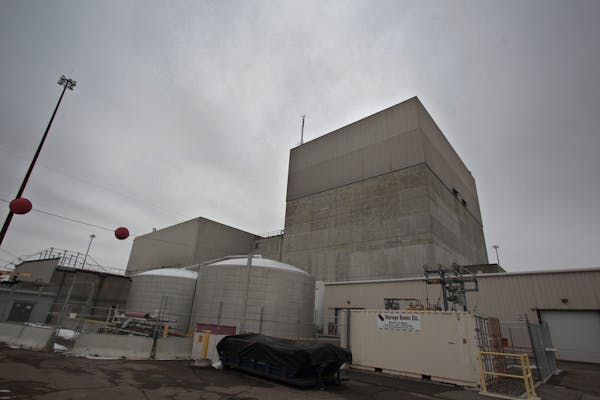The push to form a municipal utility in Minneapolis is fizzling.
After a majority of speakers at an Aug. 1 hearing opposed the idea, key advocates of exploring a city takeover of electric service are backtracking and the issue no longer appears headed for a November referendum.
"Clearly, there is not interest in putting this on the ballot," said City Council Member Elizabeth Glidden, who leads the committee that oversees energy issues.
Xcel Energy's top official in Minnesota, David Sparby, pledged in a letter to Mayor R.T. Rybak this week to work with the city on increasing renewable energy sources and energy-efficiency programs, particularly for streetlights. He also said Xcel would deliver regular reports on the reliability of the company's electric service and how it will invest in its electric grid. He suggested forming a joint committee to explore how to reach Minneapolis' goal of reducing greenhouse gas emission by 30 percent.
Sparby concluded that if Minneapolis created a utility "it would be difficult to move forward" with those proposals.
Rybak responded appreciatively, saying the city should not pre-empt these conversations by putting a municipal utility question on the ballot this fall.
Council Member Cam Gordon, who has led the municipal utility effort, agreed.
"Maybe we can give this some time and see what kind of partnership evolves," he said.
The debate has cropped up as Minneapolis leaders decide how to proceed when the city's 20-year franchise agreements with Xcel and CenterPoint Energy expire at the end of 2014. Those agreements give the utilities public rights of way in exchange for millions of dollars in franchise fees for providing electric and natural gas service across the city, but they lack the renewable energy requirements that city leaders are seeking.
Many council members have voiced concern about how the city could afford to buy Xcel's assets in Minneapolis, much less know how to distribute energy and handle large power outages caused by storms. But supporters said that such a project could offer a way to produce more clean energy and that putting the matter on the ballot would at least give the city leverage in its negotiations with Xcel.
Most of the debate has centered on Xcel, rather than natural gas utility CenterPoint. CenterPoint last month reached an understanding with Minneapolis Energy Options, an environmental coalition advocating that the city explore a municipal utility, after committing to work together on energy goals.
At next Thursday's Committee of the Whole meeting, Gordon no longer plans to introduce resolutions that would put the municipal utility question in the ballot. He said he is working on a new resolution that would give council members a framework on how to proceed after they receive a council-commissioned study due back in February; the study will examine a range of alternatives, including the creation of a municipal utility, when the franchise agreements end.
Even Minneapolis Energy Options has conceded it is not the time to seek voter approval.
Dylan Kesti, the organization's campaign coordinator, said it wants to continue educating residents around the city about energy goals, build a larger base of support and wait to see how Xcel will work with Minneapolis.
"This is a pretty small first step," Kesti said. "They're not giving a lot, but this is a step forward, so we'd be willing to see how this goes."
Still, he added, the city has never had this level of conversation about utility franchise agreements, "and that's exciting."
Maya Rao • 612-673-4210

What it was like to watch the northern lights dance across the Minnesota sky

Photos: See the northern lights across Minnesota

Live: Updates and photos from the Minnesota fishing opener
Riders say Metro Mobility is a lifeline, but sometimes it makes their lives miserable


